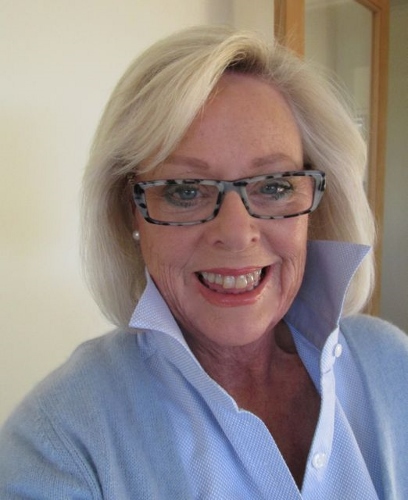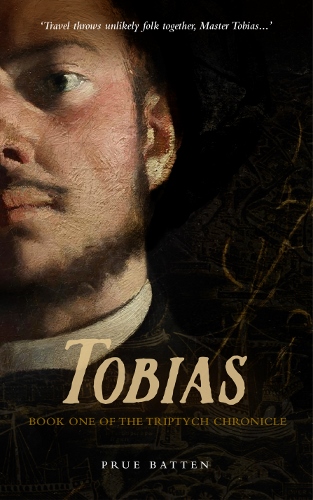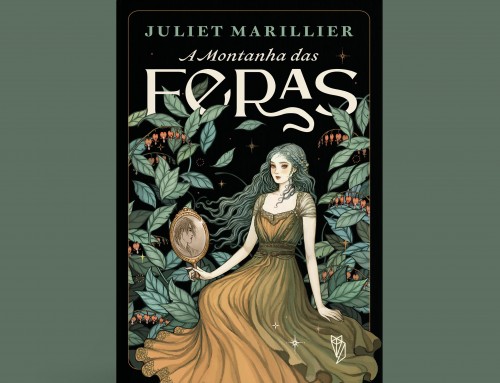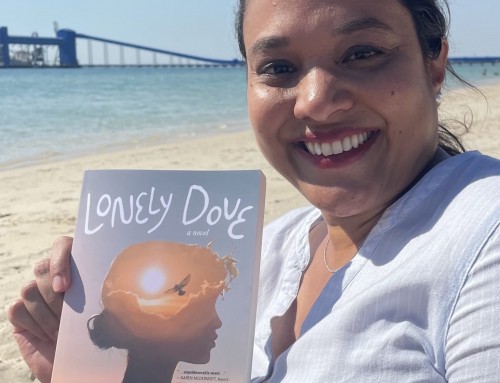I was delighted when Tasmanian author Prue Batten agreed to an interview to coincide with the release of her new  historical novel, Tobias. Prue was formerly a journalist and now describes herself on her website as ‘a cross genre writer who is also a farmer, dog owner, gardener and embroiderer.’ Prue also enjoys cooking – no surprise, really, since both gardening and cookery involve the same alchemy as writing fiction does: taking a bunch of disparate ingredients and making something fresh, new and exciting. That something might be a fabulous cake, a rich batch of compost or a fast-paced story set against an intricate historical background.
historical novel, Tobias. Prue was formerly a journalist and now describes herself on her website as ‘a cross genre writer who is also a farmer, dog owner, gardener and embroiderer.’ Prue also enjoys cooking – no surprise, really, since both gardening and cookery involve the same alchemy as writing fiction does: taking a bunch of disparate ingredients and making something fresh, new and exciting. That something might be a fabulous cake, a rich batch of compost or a fast-paced story set against an intricate historical background.
Tobias is Prue Batten’s eighth novel and the first instalment in a new series, the Triptych Chronicle. Prue’s earlier books have been very well received by readers, especially in the UK, and have won various awards. In between promoting the new novel, getting started on the next one and attending to various duties on the farm, Prue took time out to answer some questions for me.
Prue, congratulations on the release of Tobias! Could you give readers a snapshot of the book and the series?
Thank you, Juliet.
The novel (and indeed the whole Chronicle) is set in the late twelfth century, essentially at a time when trade is beginning its upward trajectory and when Venice and Genoa are beginning to compete in the marketplace. It is also a time between the Third and Fourth Crusades when parts of Europe are sitting winded at the huge losses faced by Capetian Phillip and Plantagenet Richard. In addition, King Richard has been imprisoned by the Holy Roman Emperor in Durnstein Castle, so much of France and England is a state of nervous flux. I chose to take three characters from The Gisborne Saga and devote one book each to them for The Triptych Chronicle.
The blurb for Tobias reads thus:
‘Byzantium stretches a weakening grip across Eastern Europe, trying in vain to hold onto all that has made it an empire. Tyrian purple, the unique dye that denotes its power, is held under close guard by the imperial house.
However a Jewish merchant from Venice has sourced an illegal supply and Tobias the dwarf minstrel and his twin brother, Tomas, begin a dangerous journey to retrieve the purple and deliver it into the merchant’s eager hands.
But is this supply as secret as they had hoped?
Trade is cut throat, men are expendable, money is power and Constantinople provides the exotic backdrop during a time of scimitars and shadows.
This is Tobias – the story of a minstrel and a broken life…’
 Toby is such a memorable individual. I know he was first introduced as a secondary character in your Gisborne series. What made you decide to give him his own story?
Toby is such a memorable individual. I know he was first introduced as a secondary character in your Gisborne series. What made you decide to give him his own story?
Tobias became my friend when I wrote about him in two earlier books. He is everything I would want in a close confidante – funny, creative, irreligious and so very loyal. In addition, he is the kind of fighter one would want at one’s back.
I didn’t ever think I would write an entire novel about him until one day my editor said that Tobias had a story to tell. I asked Toby what he thought and in the typical manner of a troubadour he answered ‘Of course! A chanson de geste!’ And he gave me his blessing.
Toby has several unusual qualities that must have been important to get right. How did you go about your research for this book, and especially the research in relation to your central character?
The very fact that Tobias is a dwarf (or as they are known now, a little person) presented enormous difficulties. I knew nothing about the condition called achondroplasia (dwarfism). I wanted Toby’s story to be utterly believable and I wanted my reader to understand how hard medieval life was for someone with physical difficulties.
My first instinct was to google it and I came across a blog called www.dwarfaware.com. I contacted the blogger, a wonderful lady in the USA called Jenovesia Porteo and whose son has achondroplasia. She answered every single question I had with great detail and honesty. It’s important to remember that my medieval world couldn’t be scaled down – Tobias and his brother had to cope.
The musical side was a wonderful journey through Occitan poetry, with much time spent listening to Occitan melodies (and indeed Orthodox Christian chants) on Youtube and generally learning about medieval music, vielles and the troubadour tradition.
I tried to avoid the more clichéd side of twinship. It is evident that there is a strong brotherly bond between the two men, but I didn’t want to stray too much into the esoteric side of twinning. This is a story about brothers as much as it is a story about twins.
You’ve said that you choose an actor as the model for your protagonist in each series. For the Gisborne books it was Richard Armitage, who played Guy of Gisborne in the Robin Hood television series. For Tobias the model is Peter Dinklage (Game of Thrones.) Can you explain a bit more about this process? What do your readers think of it?
Oh such a good question! It’s rather a two edged sword to talk online about the fact that one is inspired visually by a particular actor. For a start it may detract from the reader’s ability and need to create a face and body in their imagination as they progress through a narrative.
But very early in my writing journey, I met a theatre person, a costumier from Los Angeles, and she told me to watch an actor portray a role. She said, ‘Try to catch every vocal nuance, every muscle twitch across the body. It all builds a character and tells a story.’ And so I found it extremely helpful to find actors who defined my characters and I would then watch them in specific roles, exactly as my friend the costumier suggested.
You started your career as a published novelist with a folkloric fantasy series. What led you from fantasy to historical fiction?
In a way, it was an easy jump when I wrote the trilogy entitled The Gisborne Saga because what I was doing was taking a legendary figure, Guy of Gisborne, and writing an alternate history for him. However by Book Three in the trilogy, it felt as if I had left alternate history/legend behind and was progressing through the door into full-blown historical fiction. Tobias has certainly cemented my love of writing in the genre. But there are readers who still wish for more of the fantasy world of Eirie and that may happen one day.
The action of Tobias takes place partly on a merchant ship and partly in the ancient city of Constantinople. I know you are a fan of the wonderful Dorothy Dunnett, who had such skill with scene-setting and grand ‘set piece’ action sequences. You evoke the sights, smells and sounds of the city wonderfully well in this novel. Which scene was most enjoyable to write, and why? Which scene was most challenging?
I love life on the sea, so anything shipboard is filled with light and life for me, but I do like Tobias’ time in Hagia Sophia, which in the twelfth century was called Sancta Sophia. It is such a magnificent building with an eerie and inspiring interior that lends itself to pure drama. In addition, the pockets of Tobias’ time in Venice resonate as well, even though it is a Venice which we can barely imagine with trees and fields, and houses set far back from the water.
The most challenging? I am known for having a weak stomach; gratuitous violence sends me running behind cushions. But Toby’s life as a spy in the twelfth century would be sheer mockery without it, so I had to gird my loins, close my eyes and just write. Reading it back for editing was difficult…
What has been the most rewarding aspect of writing this book?
Toby’s story was filled with emotion and if I have conveyed half of what I wanted, then I shall be happy. He is my favourite character from all eight books and for me, he sets a very high standard for the future.
You are a passionate advocate for indie (self-published) writers, and I am impressed by your professional approach to your work. What would be your top tips for a novelist starting out as an indie? What are the most common pitfalls?
The tips and pitfalls are synonymous. One MUST have a professional editor, MUST have a professional cover designer, MUST have professional formatters for e- and hard copy editions and MUST join the Alliance of Independent Authors (http://allianceindependentauthors.org), the site which provides every possible piece of advice a new independent author might need.
Tell us about your writing process. How long does it take you to write a novel from initial idea to finished, polished manuscript, and what stages does the work go through along the way? Where do you fit on the pantser to planner spectrum? Is there such a thing as a typical writing day for you?
It takes me approximately a year to write a novel, from the inception of the idea, through research, to writing, professional editing and formatting. I write in long hand and my first transcription to computer files is my first edit. I complete another edit on a read-through at the end of transcription. I print off the whole novel and sit and read with a red pen noting everything that sits badly, including defining historical facts. That edit is completed and then I send the whole manuscript electronically to my editor in the UK and he does his plastic surgery and sends it back and the final edit takes place. I then read again, just to be sure, and once that’s done, it goes to my e-formatter in Scotland and lately, my print (hard copy) formatter here in Tasmania.
I’m essentially a pantster although I do have a page or two of ‘the story’ by my side.
A typical day? No. My self-discipline is appalling. Show me the sun, the fresh air, dogs and the sea and I am afraid I disappear very quickly.
I’m looking forward to Book 2 of the Triptych Chronicle. Can you tell us who the main character will be? Where does the action take place?
The central character is Guillaume, the Angevin archer from The Gisborne Saga. The story takes place in and around Lyon, France in the late 1190’s.
Last but not least, where can readers purchase a copy of Tobias?
http://authl.it/3ns
Thank you so much for your time, Prue!
Juliet, thank you so much for hosting me. It’s been a great pleasure to talk with one of my longtime favourite authors.


